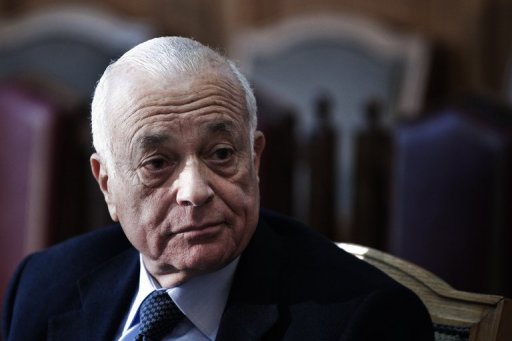As the United States prepares to implement a new strategy in Iraq, its main target in Baghdad is the Mehdi Army led by Moqtada al-Sadr. In December, the bipartisan Iraq Study Group identified the Mehdi Army and the Badr Brigade, the armed wing of the Supreme Council for the Islamic Revolution in Iraq (SCIRI), as major perpetrators of sectarian violence. The US has finally begun to question its policy of pandering to Shiite militias. Indeed, hoping to curry favor with Iraq’s majority community, American forces played handmaiden to the meteoric rise of several armed Shiite factions. In recent months, American and British forces have engaged in anti-militia crackdowns, but while these incidents may have prevented specific instances of abuse, they were not enough to rid Iraq of the scourge of militia violence and extrajudicial authority. The problem of Shiite militias has its origins in the conduct of coalition forces immediately following the occupation of Iraq. In order to avoid offending Iraqi religious and national sensibilities, but also to protect their own soldiers, American and British military units were ordered to avoid seizing control of major population centers in their entirety. Instead, they contented themselves with cordoning off specific areas, such as the Green Zone in Baghdad, for example. As a result, the collapse of the previously ubiquitous Baath Party created a power vacuum that was filled by ad hoc militias, as well as groups returning from Iran, such as the Badr Brigade. Sunni militias, sometimes in conjunction with Al-Qaeda terrorists, quickly took over major Sunni areas, while Shiite militias seized control of southern cities and Shiite-majority neighborhoods of Baghdad. In both instances, the religious minorities caught in the middle fared terribly, as did women. Soon enough, coalition forces began trying to flush out the Sunni insurgents and their terrorist allies. Yet, a parallel effort to combat Shiite militias stalled. While in many cases Sunni militias and terrorists were forced out of major cities, Shiite militias have actually cemented their control of day-to-day affairs in many southern cities, as well as in Baghdad’s Sadr City. The most obvious victims of coalition negligence in the face of growing Shiite militarization were the urban Sunnis, who continue to face sectarian cleansing by Shiite militias. Though the bloodiest attacks in Iraq have been mounted by Sunni terrorists against Shiite civilian targets, and many Shiite civilians have been forced from their homes by armed Sunni factions, it is Shiite militias that have taken the lead in terms of demographic re-engineering. Shiite militias are larger and better equipped than their Sunni counterparts, who tend to operate in smaller groups and are incapable of sustained fighting. Crucially, the Shiite militias often operate in cahoots with the official security forces, when they are not actually part of them. In the beginning, the US identified Iran as its major Shiite concern, but Iraq-oriented Shiites as less of one. In fact, the situation was far more complicated. Non-alignment with Iran is no guarantee of moderation, and there has always existed theocratic dynamism within Iraqi Shiism, as a glance at the three main Iraqi Shiite political groups will demonstrate. First, there is the Sadrist movement. It was formed in the wake of the US invasion of Iraq as the self-proclaimed inheritor of the Sadr family legacy. Initially it had little to do with Iran, though Moqtada al-Sadr expressed support for Ayatollah Ruhollah Khomeini’s concept of wilayat al-faqih, or guardianship of the jurisconsult. Sadr was in fact rebuffed by Qom-based Ayatollah Kazem Haeri, whom he had sought as a source of reference. Yet Sadr quickly emerged as one of the most virulently anti-US voices in Iraq, and the Mehdi Army, which controls the Health and Transportation Ministries, is responsible for much anti-Sunni violence. Second, is the Daawa Party, The party predates the Islamic revolution in Iran by decades, having been formed in Iraq in the 1950s. Though it does not subscribe to Khomeini’s doctrine of wilayat al-faqih, Daawa nevertheless stands for an Islamic state in Iraq. This has not strained relations with the US. The current prime minister, Nuri al-Maliki, and his predecessor Ibrahim Jaafari are both prominent members of Daawa. Third is the Badr Brigade, officially renamed the Badr Organization. As is evident from its name, but also its ideology, SCIRI was directly inspired by the Islamic revolution in Iran, and actively seeks the establishment of an Iranian-style theocracy. SCIRI joined the political process in Iraq as soon as the Baath fell, and has surprisingly come to be viewed favorably by the US. Meanwhile, the situation with Sunni Arabs has changed. Though Sunni rhetoric remains defiantly anti-American, privately the Sunni Arab community has expressed fears concerning its fate in a post-occupation Iraq dominated by Shiites. Many US military commanders have reported being approached by Sunni notables and asked to remain in certain areas, as residents fear the Shiite militias and even the Iraqi security services. It is already too late to reverse many of the mistakes that caused this predicament. Early on, the US decided to abandon Iraqi secularists in favor of wooing more popular Islamist parties–Shiite and Sunni. Worse, the US granted armed Shiite factions great latitude. Today, disbanding the Mehdi Army has become imperative. Closely monitoring the security services–dominated by SCIRI and Daawa – is another priority, and can ensure a drastic reduction in the death squads and kidnappings targeting Sunnis. Ultimately, the real challenge is to convince the Shiite parties that it is incumbent upon the Shiite majority to behave responsibly toward the country’s minorities, and to refrain from seeking revenge against Sunnis for what happened under the Baath. A newly enfranchised Shiite majority waging war against an embattled Sunni minority will surely destroy Iraq. Rayyan al-Shawaf is a freelance writer and reviewer based in Beirut. He wrote this commentary for THE DAILY STAR.


